

Chemical fertilizers that some gardeners use sure can feed those vegetables in the patch, but not the soil itself!
As time passes, chemicals alter microbial life and renders soil barren and sterile. It’s best to avoid these environment-killing products and feed your beloved growing soil with natural amendments instead!
It’s a doubly wise move since, more often than not, they’re free!
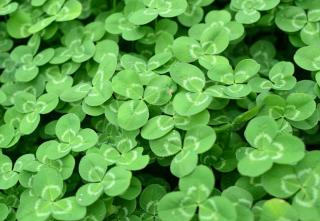 Scorpionweed, clover, mustard… Green manure groups all plants that excel at restoring soil nutrients instead of depleting them.
Scorpionweed, clover, mustard… Green manure groups all plants that excel at restoring soil nutrients instead of depleting them.
Usually, they’re planted in the vegetable patch at the very beginning of Spring, at the end of the Summer or in Fall as soon as a plot has been harvested.
Some vegetables such as tomato tend to pump huge amounts of nutrients out of the soil. It’s important to replenish these before planting anything else. Green manure also helps contain erosion and landslides, limits weed growth, and prevents rain from washing nutrients away.
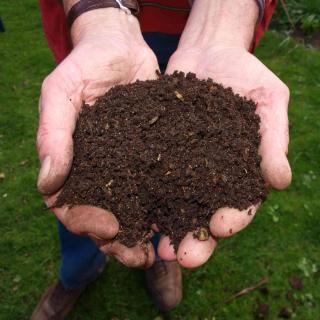 Compost is a fabulous way to add organic matter! On the one hand, it is incredibly rich thanks to the variety of compounds it contains. On the other hand, it’s free and makes good use of your waste. A compost combines kitchen scraps such as peels, water used to boil vegetables, radish and carrot leaves, eggshells, coffee grounds, meat scraps… together with garden and workshop waste such as lawn clippings, sawdust, twigs, weedy teas, ashes and dead leaves.
Compost is a fabulous way to add organic matter! On the one hand, it is incredibly rich thanks to the variety of compounds it contains. On the other hand, it’s free and makes good use of your waste. A compost combines kitchen scraps such as peels, water used to boil vegetables, radish and carrot leaves, eggshells, coffee grounds, meat scraps… together with garden and workshop waste such as lawn clippings, sawdust, twigs, weedy teas, ashes and dead leaves.
This nutrient bomb provides much more than the basic nitrogen, phosphorus and potassium mix! Most trace elements necessary to proper plant growth are included, too.
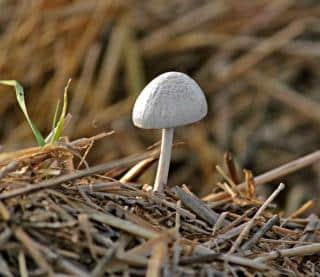 With high levels of nitrogen and carbon (depending on how much straw is mixed in), manure is an excellent choice to enhance your soil. The advantage is that it’s often very easy to procure. All you need to do is to ask you local animal farms for some they’ll give it to you by the truck-full! On top of providing nutrients, manure contributes to soil structure: it loosens it up, lets water and air circulate, and makes it easier to till and work with. You can spread it directly on the plot, or add it to your compost.
With high levels of nitrogen and carbon (depending on how much straw is mixed in), manure is an excellent choice to enhance your soil. The advantage is that it’s often very easy to procure. All you need to do is to ask you local animal farms for some they’ll give it to you by the truck-full! On top of providing nutrients, manure contributes to soil structure: it loosens it up, lets water and air circulate, and makes it easier to till and work with. You can spread it directly on the plot, or add it to your compost.
Now we’re getting down to business: weedy tea! They enrich the soil and double as excellent pest control agents. It’s a foregone conclusion that every organic gardener will want to avail of fermented tea’s stacked benefits.
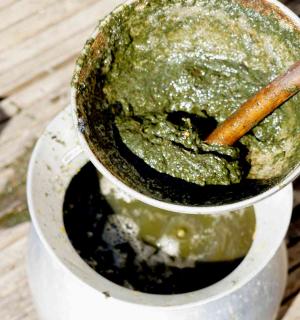 Whether we’re talking nettle, tansy, comfrey or horsetail, the mechanics are similar:
Whether we’re talking nettle, tansy, comfrey or horsetail, the mechanics are similar:
Remember that animal fertilizer such as crushed horns, dried blood and guano are also extremely relevant! These tend to have lots of minerals, they boost growth together with blooming and fruit formation.
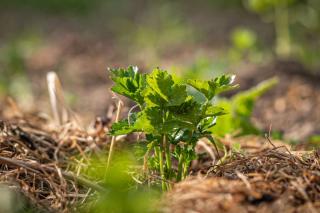 In all things nature, the ground is never bare. This simple observation explains why permaculture uses mulch to cover the ground and enrich it.
In all things nature, the ground is never bare. This simple observation explains why permaculture uses mulch to cover the ground and enrich it.
It also helps preserve soil moisture, insulates from the cold, and even keeps weeds from growing. It breaks down and enriches the soil as it does so.
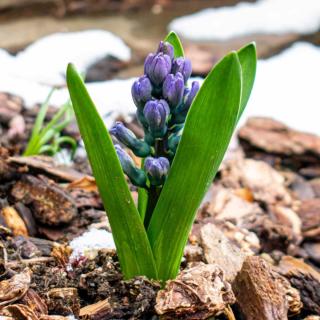 Mulch must be renewed from time to time, preferably with a new, different mulch than the previous layers:
Mulch must be renewed from time to time, preferably with a new, different mulch than the previous layers:
Remember to always cover your vegetable patch and growing beds with mulch to keep the soil rich and alive.
Among the easiest options is to make use of something that’s always a hassle to dispose of: ashes! When they come from clean, untreated wood, ashes are excellent for garden use.
Sprinkle them around veggies, seedlings and flowers, or topdress your lawn with a thin layer.
Another option is to dissolve the ashes in rainwater, and use that for watering. Excellent for houseplants! Dilute 1:10 before watering for indoor or covered use.